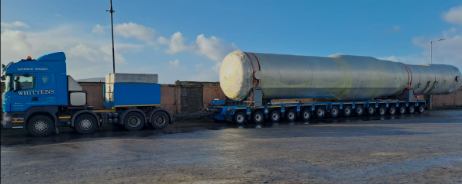Transport bodies are urging police in the UK to apply regulations on moving large or heavy cargo fairly and consistently.
 Hauliers report that some police forces have imposed and are enforcing blanket movement embargoes on abnormal loads which they say are increasing bureaucracy and cost.
Hauliers report that some police forces have imposed and are enforcing blanket movement embargoes on abnormal loads which they say are increasing bureaucracy and cost.
Firms have said that forces are being inflexible on dates and won’t accept short-notice movements, and are deviating from legislative guidance without industry consultation.
The RHA, Heavy Transport Association, British Holiday & Home Parks Association, and National Caravan Council said police actions are delaying projects and increasing operating costs.
They make the point that these actions are causing knock-on effects on other parts of the economy. Tourism, housing, manufacturing and construction are hit by inconsistent police actions when hauliers can’t move vital loads efficiently.
The groups have written to Humberside Police where there’s been problems moving static caravans. They’ve also written to senior officers in Merseyside, Greater Manchester, West Midlands and North Wales after firms have complained.
They’re calling on chief constables to confirm if their forces are following College of Policing guidelines on Special Types General Orders (STGO).
Last month they wrote to the National Police Chiefs Council (NPCC) who co-ordinate forces to work together on common issues, in a bid to ensure regulations are enforced consistently.
They said: “We ask the NPCC to establish a clear set of guidelines and best practice for Chief Constables on abnormal load movements as well as help address the immediate challenges of the increased restrictions and notification requirements.”
They expect to hear back from the NPCC at the end of July.
The group advises firms that they can make a complaint about conduct in public office by an individual officer or force, through the Independent Office for Police Conduct (IOPC).






















